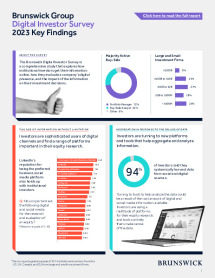Featured Publications

Learning outcomes going global
April 4, 2024
cedefop.europa.eu

State Of Grocery Europe 2024
April 8, 2024
eurocommerce.eu

Food For Thought - Baltic ideas for sustainable food policy
April 5, 2024
airclim.org

Sufficiency at the heart of the EU’s future
April 5, 2024
eeb.org

The United States’ Strategy for Securing Critical Minerals Supplies Can It Meet the Needs of the IRA?
April 8, 2024
ifri.org

Collaborative Excellence in the European Research Area - COST Annual Report 2023
March 29, 2024
cost.eu

Resourcing A Material World - How the EU can fund real solutions
April 8, 2024
rethinkplasticalliance.eu

Social listening analysis of meat and dairy persuasion narratives
December 1, 2023
changingmarkets.org

Reboot Europe - Stronger Businesses Stronger European Union
April 5, 2024
businesseurope.eu

Architecture Policies Europe 2024
April 2, 2024
ace-cae.eu

The Future of Nuclear Proliferation after the War in Ukraine
April 11, 2024
ifri.org

EU ECA fossil fuel phase-out tracker
April 15, 2024
counter-balance.org

Plastic - The (in)Visible Pollution
April 8, 2024
rethinkplasticalliance.eu

Cycles of Israeli forced displacement of Palestinians
April 8, 2024
actionaid.org





















